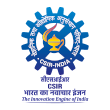Ground and surface water sources contain many contaminants, making them unsafe to drink. Consumption of untreated water can pose serious health issues that may lead to diseases, including fluorosis, blue baby syndrome, cholera, typhoid, jaundice, and dysentery. There are several methods for water purification. The use of membrane technology is one of the many methods.
CSIR-Indian Institute of Chemical Technology (CSIR-IICT) has developed cost-effective water purification membrane technologies that consume low energy, leaves a small carbon footprint, and has excellent impurity rejection.
The reverse osmosis (RO) membrane process is one of the best solutions for treating groundwater resources containing heavy metal ions and higher total dissolved solids. RO works on the mechanism of reversal of water flow through a semi-permeable membrane and applies pressure more significant than the natural osmotic pressure of the raw groundwater.
The IICT team has developed a novel polyurea-based RO membrane for the effective removal of heavy metal ions along with dissolved and suspended solids from groundwater with high water flux. The membrane effectively removes all impurities in a single step at a lower operating cost of less than ten paise per litre. Several pilot plants have been installed in fluorosis-affected regions, including Nalgonda district in Telangana, Prakasham district in Andhra Pradesh, besides Tamil Nadu and Karnataka, to provide water to half a million population residing in fluorosis affected regions. The process brings down the fluoride content from around five ppm to < 0.5 ppm and total dissolved solids (TDS) from 1200 ppm to about 120 ppm as per World Health Organisation (WHO) standards

First model defluoridation plant of 600 litre/hr capacity, installed by CSIR-IICT in Mylaram Village of Nalgonda District in 2005.
CSIR-IICT also developed a novel hydrophilized polyamide-based Nanofiltration (NF) membrane to treat moderate TDS ground and surface water to produce re-mineralized water for consumption. For raw water with low TDS, the NF process is considered preferable over RO due to low operating pressure, higher water recovery and its ability to allow sufficient mineral elements into the permeated water. The other novel feature of the NF process is the vertical modular system design. This design reduced the difficulty in transportation to remote areas. At a feed pressure of 7 atm and operating cost of 5 paise/litre, the NF systems reduce the TDS from 400 – 700 ppm to around 200 – 300 ppm, with complete removal of pathogens and turbidity making it safe for drinking.

Model Nanofiltration Plant of 1000 litre/hr capacity installed by CSIR-IICT in Mogallu Village of Bhimavaram, West Godavari in 2016.
CSIR-IICT installed many NF plants for providing safe drinking water to school children and surrounding villages. In 2017, CSIR-IICT set up a unit at the Gandhi Hospital in Secunderabad, Telangana for the hospital staff, patients and attendants. More than three lakh people have benefitted from CSIR-IICT’s NF technology.
CSIR-IICT designed a high flux Polyethersulfone-based hollow fibre Ultrafiltration (UF) membranefor complete clarification and disinfection of floodwater. The units of 700 litre/hr capacity were installed at 25 locations in seven Indian states affected by floods, including Kerala, Karnataka, Maharashtra, Bihar, Assam, and more recently in West Bengal and Orissa during Amphan and Yaas cyclones, respectively.

Hand Pump Operated Ultrafiltration System developed by CSIR-IICT and its implementation at Belgavi District, during floods in Karnataka
The challenge posed by lack of power supply was tackled by using a hand pump to operate the UF system at a pressure of 1 atm. A chlorine cartridge at the outlet prevents any secondary contamination caused by harmful microbes. Systems were mounted on bicycles for transportation to remote villages. Nearly two lakh people benefitted from safe and clean drinking water during floods, preventing epidemics such as cholera, gastroenteritis, jaundice and typhoid. The TDS of the drinking water remained at 150 to 250 ppm with zero bacterial content.
To promote urban welfare through free water camps, CSIR-IICT set up a RO unit (Figure 4) near CSIR-NGRI, Hyderabad, Metro Railway Station on Uppal Road, in 2016. CSIR-IICT designed and installed the unit that generates safe drinking water from a bore well water source, bringing down the TDS from 840 ppm to 110 ppm. Pedestrians, drivers and passengers of buses, cars, autos, two-wheelers, senior citizens and children consume about 3000 litres/day in summer.

Free water camps run by unique modular RO system designs in Hyderabad
The challenge posed by wastewater disposal in RO systems (40% by volume) was addressed by post-treatment to remove fluoride for reuse of the water in fly ash brick kilns, non-edible plantations and restrooms. In NF systems, the reject volumes are much lower (20%) and reused for cleaning utensils, laundry, and other washing purposes. In contrast, the reject quantity in UF plants is much lower at < 10% and routed back to the surface water body.
The water purification technologies of CSIR-IICT have touched livelihoods in various regions, including cyclone and fluorosis-affected areas. CSIR-IICT strives to provide safe drinking water— a fundamental right of every Indian citizen.
Sridhar Sundergopal and Ambica Vankamamidi
CSIR-Indian Institute of Chemical Technology

 Pensioners Corner
Pensioners Corner Screen Reader Access
Screen Reader Access Skip to main content
Skip to main content






















